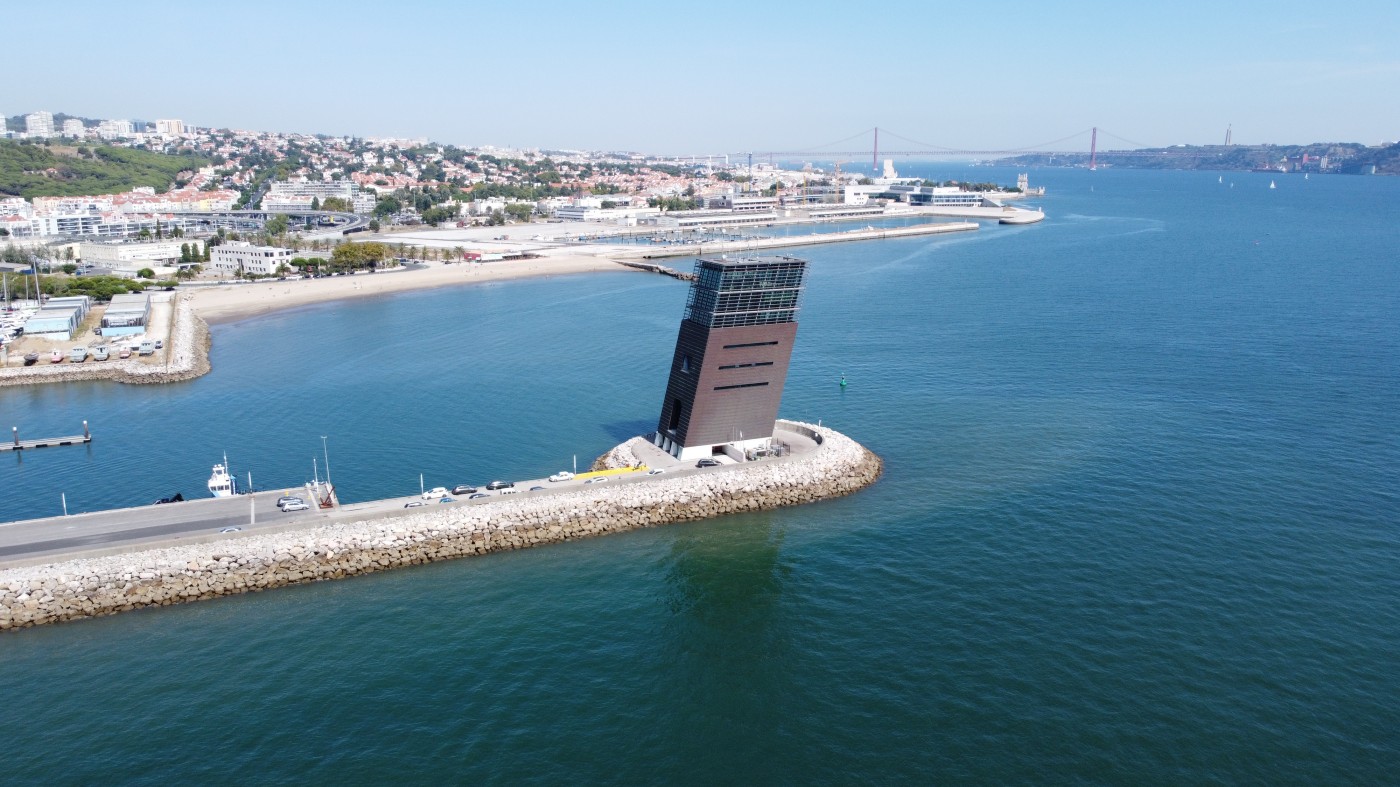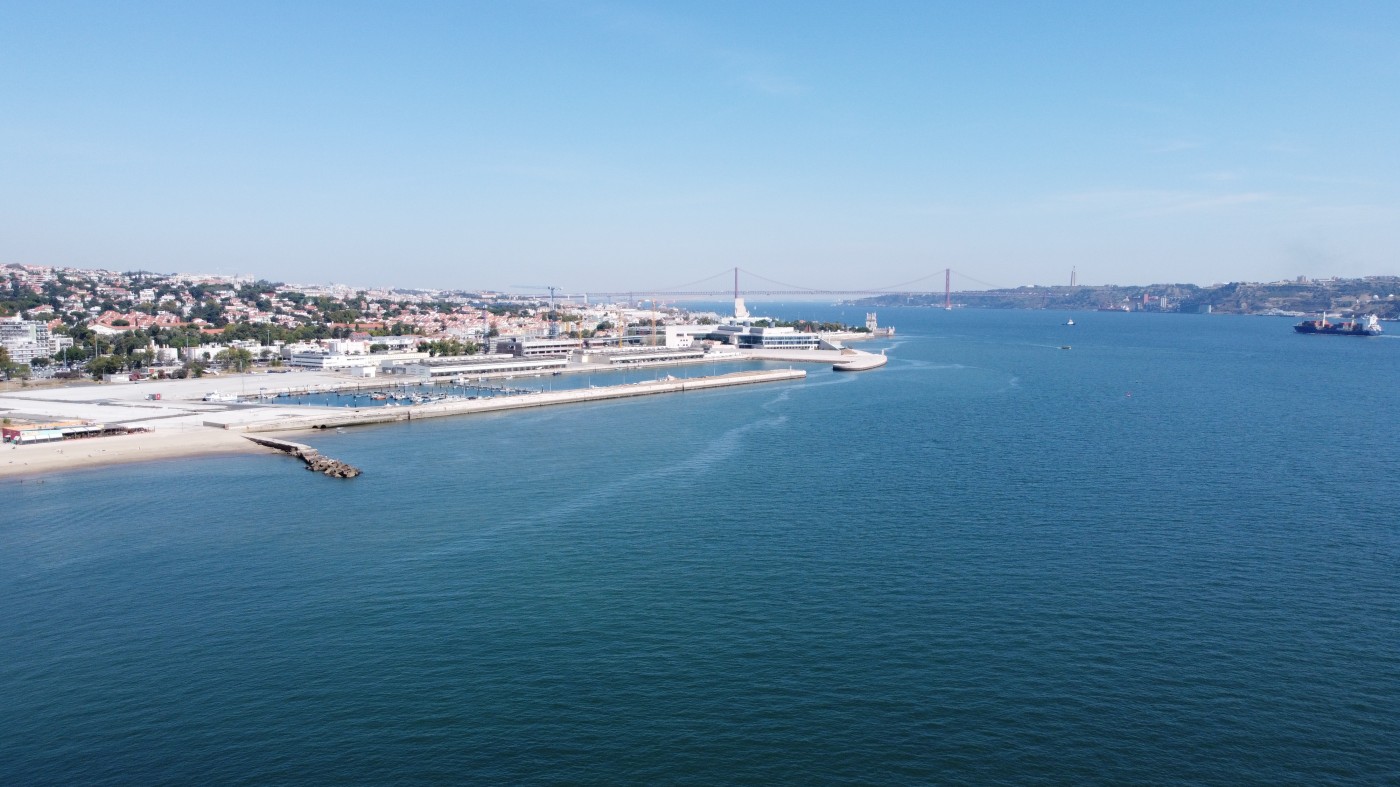ESPO Award 2020 Shortlisted Projects: Port Authority of Lisbon
02 November 2020
The ESPO Award 2020 will go to the port managing body that has developed a successful strategy to attract innovation and local start-ups to the port and thus matches supply and demand for innovative solutions for the port and its stakeholders. The winning port will demonstrate to what extent this strategy has led not only to stimulating innovation in the port, but also making the port ecosystem an attractive place for innovative ideas and local young start-up talents.
The four projects that are shortlisted for this year’s Award are the projects of Algeciras Port Authority (Spain), Port of Amsterdam (the Netherlands), Port Authority of Lisbon (Portugal) and Puertos del Estado (Spain).
ESPO is proud to present the shortlisted projects before the winner is announced during a special virtual event on 10 November. Register here to be the first to know the winner.
Port Authority of Lisbon
Ocean Campus
ESPO: Congratulations! You have been shortlisted for the ESPO AWARD 2020! Could you briefly describe your project?
The Ocean Campus is a Strategic Plan that aims to revamp a vast territory in the heart of the Port of Lisbon, from Pedrouços, in the municipality of Lisbon, to Jamor, in the municipality of Oeiras, by creating an ecosystem of excellence in RD&I, bringing together researchers, entrepreneurs, main companies, academics and experts in the sea-related field, which will be implemented in three phases.
The first phase is already in progress and corresponds to the development of the area in the surroundings of Doca de Pedrouços, where the pre-existing facilities are located. This dock will be revamped for recreational boating and to accommodate maritime research vessels, to install a shared ocean lab, a start-up centre and a one-stop shop for blue economy activities. Accommodation facilities for students and researchers will also be built on the dock area and outdoor public spaces and commercial areas will be created.
The second phase includes the construction of the Blue Business School, new spaces for blue technology companies and research centres, the new Marina do Jamor and a hotel.
The third phase, which is expected to be concluded by December 2030, will include the construction of an embankment and the creation of large outdoor public spaces.
The establishment of such a Sea Cluster will promote and foster the development of an international network of innovative start-ups, RD&I companies, and educational and technological development entities capable to compete in the global market.

ESPO: How does your project contribute to improving your relationship with the port citizens and does it succeed in directly reaching out to the local community?
The municipalities of Lisbon and Oeiras have been involved in the preparation of the plan since its beginning in 2017, through several joint work meetings, and have contributed to the design of the solutions proposed therein, safeguarding the interests of their respective communities and citizens.
The revamping of obsolete port areas through the inclusion and requalification of public outdoor spaces and through the promotion of sustainable mobility decisively contributes to the improvement of the quality of life of the population living close to the river.
The promotion of blue growth in a country like Portugal with a long-standing maritime tradition and history, as well as the creation of wealth and employment in the sectors of the sea-based economy is in line with the wishes and ambitions of a large part of the Portuguese society.
ESPO: Could you describe the original and innovative character of your project?
This plan aims to gather in the same space and in an innovative way different drivers of blue economy, from start-ups to RD&I. This includes a blue business school, administration offices, tourism and recreational boating infrastructures, as well as a one-stop shop for blue economy activities, with a sea support desk and a support office on innovation financing.
Our goal is to create a favourable environment for the development of synergies and shared infrastructures, which will allow the leveraging of blue growth in Portugal, a European Member State with a wide maritime territory and a long-standing maritime tradition.
Sea-based economy and blue growth are inevitably linked to facilities and infrastructures located in land-water interface areas like ports. Ports are the main key players in the blue growth economy, and Ocean Campus aims to raise attention to this role by placing the port of Lisbon at the forefront of innovation in the sea-based economy.

ESPO: Why do you think your project deserves to win the ESPO AWARD 2020?
We strongly believe that Ocean Campus fulfills the theme of the ESPO Award 2020, i.e. “Enhancing the port-city relationship by encouraging innovators and local start-ups to be part of the port ecosystem”, as it decisively contributes to improving the image of the Port of Lisbon, enhances its integration in local communities, stimulates innovation and makes the port ecosystem an attractive place for innovative ideas and start-up talents.
Ocean Campus means sea-based economy, knowledge and innovation, leisure and port-city integration.
Sea-based economy, as it incorporates a wide range of activities from maritime transport and tourism, to fisheries, environmental research, seabed exploitation, and offshore renewable energy, with the inherent increase of employment.
Knowledge and Innovation are key for this plan as along with the already existing R&T institutions, Ocean Campus will deliver solutions for training through a Blue Business School, an Ocean Lab and Research Centres, gathering researchers and start-up businesses.
Ocean Campus is also focused on developing port-city integration and leisure by creating attractive areas for citizens and local communities, such as two marinas, restaurants and public open spaces along the Tagus riverfront.
ESPO: How has your project contributed to encouraging innovators and local startups to be part of the port ecosystem? Could you tell us more?
The focus of the plan is to attract and gather in one place researchers, entrepreneurs, main companies, academics and experts in sea-related areas.
To accomplish that goal, the project will create a new waterfront centrality that will complement the already existing ocean-related institutions, like the Ministry of Sea or the Portuguese Institute for Sea and Atmosphere, along with newer research facilities like the Champalimaud Centre for the Unknown and the Botton-Champalimaud Pancreatic Centre, with a university pole (Blue Business School), shared labs, facilities for companies and start-ups, temporary accommodation for students and researchers, as well as exhibition and conference facilities.
In addition, the creation of two marinas will provide docking for research ships and equipment, along with leisure and commercial facilities.
Moreover, to facilitate the establishment of those business and research companies, the one-stop-shop will aggregate various types of consultancies, from technical and financial to legal advice.
“Ocean Campus is an opportunity for Port of Lisbon to reaffirm the Portuguese maritime heritage and create a new environment for research, teaching and technological development alongside port-city integration.”
Lídia Sequeira, President of the Board of the Port Authority of Lisbon
With the support of:
Related documents
No attachments.

